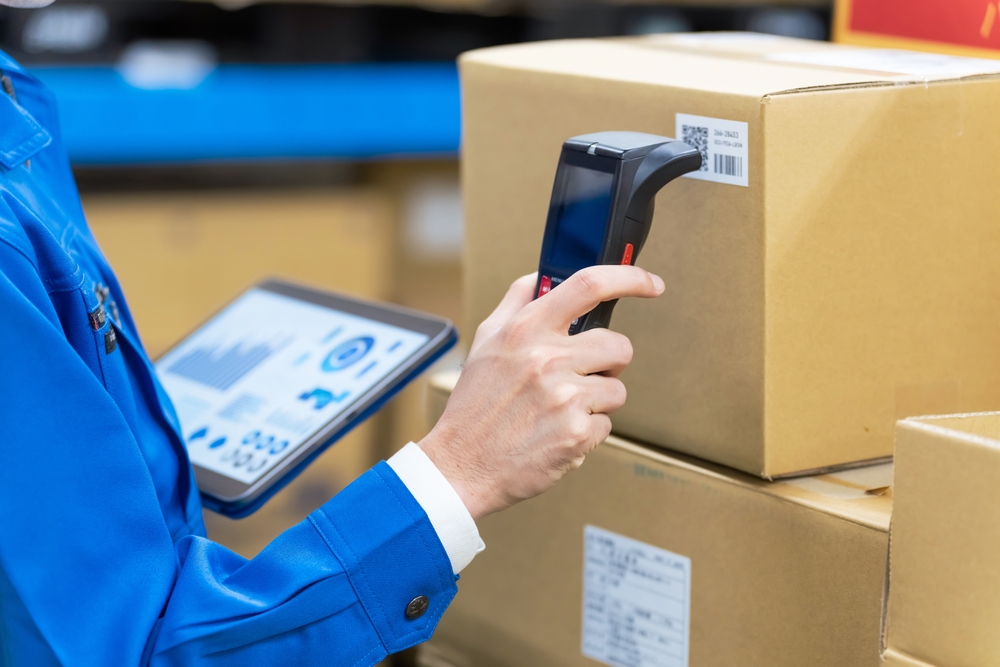The traditional methods of deliveries, though once reliable, now face challenges that come with a rapidly changing global environment. The constraints of manual route planning, a practice that relied heavily on human intuition and experience, are becoming increasingly inadequate in managing the intricacies of modern delivery networks.
Embracing new delivery management technologies marks an important advancement for businesses, providing a powerful solution to the shortcomings of traditional methods. This shift has enhanced the overall effectiveness of deliveries and set the stage for a transformative evolution in the way delivery companies approach logistics.

Challenges of the Traditional Approach
In an era marked by rapid technological advancements and changing consumer expectations, the traditional methods show numerous limitations:
1. Manual Route Planning
As delivery networks evolve and grow more intricate, the limitations of human-driven route optimization become increasingly apparent. Human intuition and experience, although invaluable, find it challenging to quickly adapt to the dynamic nature of modern delivery demands. Factors such as fluctuating demand, varying traffic conditions, and diverse delivery destinations make it difficult for people to consistently chart the most optimal routes.
2. Operational Inefficiencies
Operational inefficiencies pose a significant challenge in traditional delivery logistics, resulting in delays and increased costs. Load balancing complexities, insufficient vehicle optimization, and a lack of real-time adaptability to dynamic delivery scenarios contribute to these challenges. These inefficiencies impact the financial aspects of logistics and can jeopardize customer satisfaction.
3. Limited Visibility
Another challenge within traditional delivery logistics is the limited visibility into the real-time status and location of deliveries. This deficiency hampers both operational decision-making and customer satisfaction. Without an efficient last mile delivery management system, the lack of transparent and up-to-the-minute insights compromises the ability to make swift, informed decisions.
4. Inaccurate Demand Forecasting
In the absence of advanced analytics, traditional systems may struggle to predict demand with precision. During periods of lower demand, inaccurate forecasting may lead to the underutilization of resources. Conversely, during peak periods, traditional systems may find themselves ill-prepared and overwhelmed. The consequences range from surplus capacity to delays and operational bottlenecks, as well as potential customer dissatisfaction.
5. Scalability Challenges
Manual processes, inherent in traditional systems, may encounter difficulties in effectively accommodating the surging volume and escalating complexity of deliveries. As businesses strive to expand their reach and cater to a growing customer base, the rigid nature of manual processes can result in bottlenecks and operational constraints. The right dispatch delivery management system can help navigate the complexity of deliveries in a global marketplace, with its diverse destinations, varied transportation modes, and fluctuating demand.

Benefits of a Delivery Management System
The integration of a robust Delivery Management System (DMS) marks a significant leap forward for businesses in the realm of logistics, as it presents a transformative shift in how deliveries are managed.
1. Efficient Route Optimization
The implementation of a delivery management system software streamlines delivery routes with advanced algorithms, minimizing travel time and fuel consumption. This enhances the cost-effectiveness of deliveries and reduces the environmental impact, aligning with sustainable practices. Real-time adjustments ensure adaptability to changing conditions, providing a level of efficiency that was difficult to achieve with manual planning.
2. Real-time Visibility
Finding the right online delivery management system offers invaluable real-time visibility into the status and location of deliveries. This transparency empowers operational decision-making by providing instant insights. Businesses can proactively address potential delays, ensuring a smoother delivery process. Customers, too, benefit from this visibility, since it reduces anxiety and dissatisfaction as they stay informed throughout the delivery journey.
3. Dynamic Resource Allocation
The Delivery Management System’s analytics capabilities enable businesses to dynamically allocate resources based on fluctuating demand. This flexibility ensures optimal resource utilization, preventing both underutilization during periods of lower demand and overwhelmed systems during peak periods. The result is a more adaptive and efficient delivery operation.
4. Improved Customer Communication
Enhanced communication is a hallmark of DMS implementation. Businesses can leverage the system to communicate proactively with customers, providing real-time updates on delivery status. This increased transparency builds trust, reducing customer anxiety and fostering a positive customer experience. Improved communication is crucial in meeting the heightened expectations of today’s consumers.
5. Data-driven Demand Forecasting
A delivery order management system leverages advanced analytics to facilitate accurate demand forecasting. This data-driven approach optimizes inventory management and ensures resources align seamlessly with actual demand. Businesses can make informed decisions based on reliable forecasts, reducing the risk of overstocking or stockouts and improving overall operational efficiency.
6. Scalability and Adaptability
A DMS equips businesses with the scalability needed to accommodate growing delivery volumes. The system’s automated processes enhance adaptability, ensuring seamless expansion without compromising efficiency. This scalability is particularly crucial in a globalized market where businesses need to flexibly respond to evolving demands and market dynamics.
7. Enhanced Security and Compliance
The incorporation of robust security measures within a DMS safeguards sensitive delivery information. Automated tracking and reporting features contribute to a secure and compliant delivery environment, mitigating risks associated with data breaches. This will protect valuable business data and build trust among customers who increasingly prioritize secure and transparent transactions.

Emerging Trends in Delivery Management Technology
As the world of deliveries continues to evolve, propelled by technological advancements, several emerging trends are reshaping the landscape of delivery management technology. These trends address current challenges, but at the same time pave the way for a future where deliveries are faster, more sustainable, and seamlessly integrated into our daily lives.
1. Autonomous Vehicles
The advent of autonomous vehicles, including drones and self-driving cars, is revolutionizing last mile deliveries. Companies are exploring these technologies to enhance efficiency, reduce delivery times, and overcome challenges associated with traffic congestion.
2. Drone Deliveries
Drones are gaining prominence for their potential to revolutionize delivery logistics. Drone deliveries offer rapid and direct transportation, especially in remote or challenging-to-reach areas. Companies are actively testing and implementing drone delivery services to enhance speed and accessibility.
3. Internet of Things (IoT)
IoT devices, such as smart sensors and GPS trackers, are playing a crucial role in real-time monitoring of deliveries. These devices provide valuable data on the condition of packages, environmental factors, and vehicle performance, contributing to improved visibility, accuracy, and decision-making.

Conclusion
Choosing the best delivery management system is crucial for efficient and sustainable deliveries. As trends evolve, from autonomous vehicles to blockchain, the best DMS becomes a key to a future where deliveries are seamless and responsive.
Elite Anywhere utilizes a cutting-edge delivery management system for optimizing its operations and ensuring unparalleled efficiency, transparency, and customer satisfaction.
About Us

More than just a white glove delivery company: we specialize in receiving, warehousing, shipping, and national white glove delivery & installation services.
Categories
Related posts
Ready to get started?

Experience new growth opportunities and elevate your business to the next level with our unparalleled white-glove delivery service and extensive coverage. By partnering with us, you can tap into previously undiscovered potential that will drive you closer to your goals.

Latest blog posts
Why White Glove Delivery Is the Premium Choice
White glove delivery is not just a fancy name; it's a whole different level of service. Here’s the scoop on why this premium option!
Moving Made Easy: Your Guide to Relocating To or From Austin
No matter where you're headed, this guide from our moving experts at Elite Anywhere is here to help you with your move to or from Austin.
Packing Up or Settling Down: Your Dallas Moving Guide
Moving to Dallas is an exciting step, but making the transition to a new city can feel overwhelming if you’re not properly prepared.

A complete end-to-end logistics company. From receiving to last-mile delivery and everything in between, our staff delivers a true white glove experience with meticulous care and attention to detail. Need something pickup up, crated, and delivered - anywhere in the world? Let's get started!






